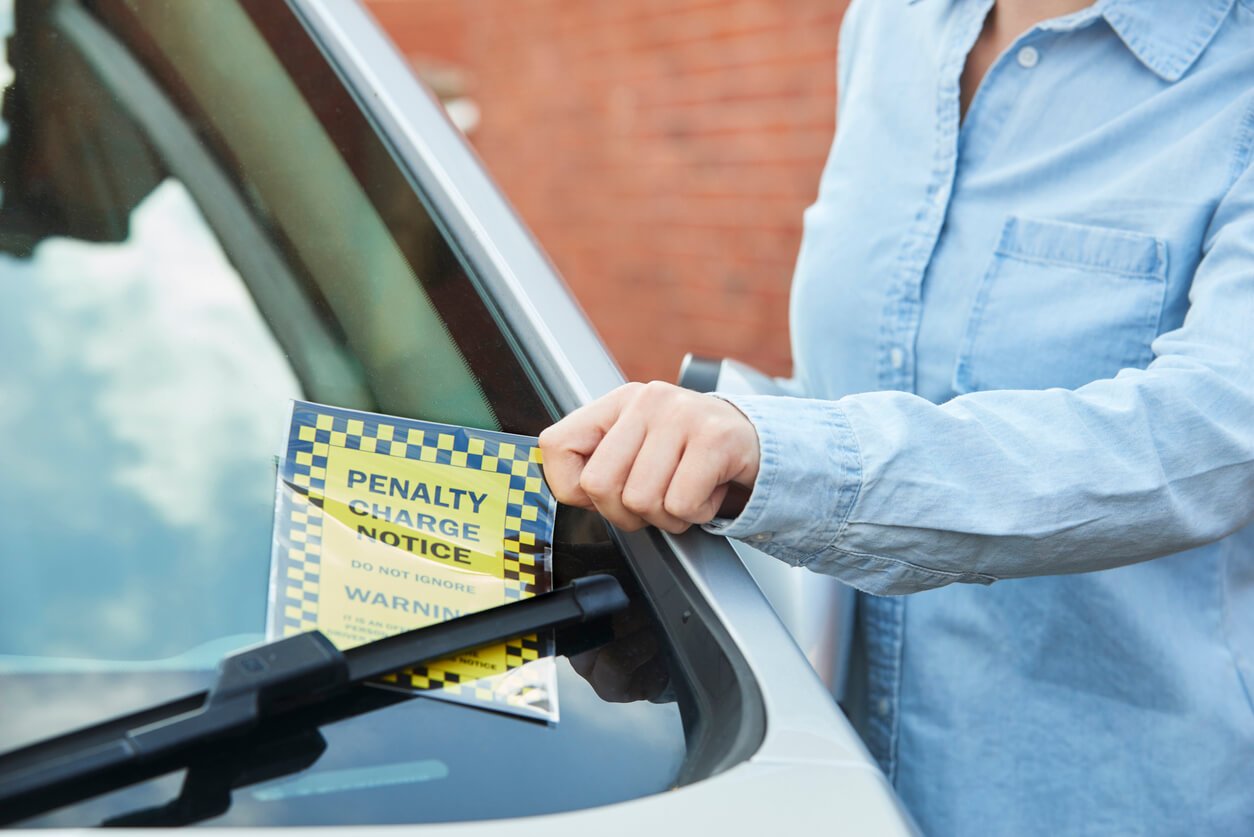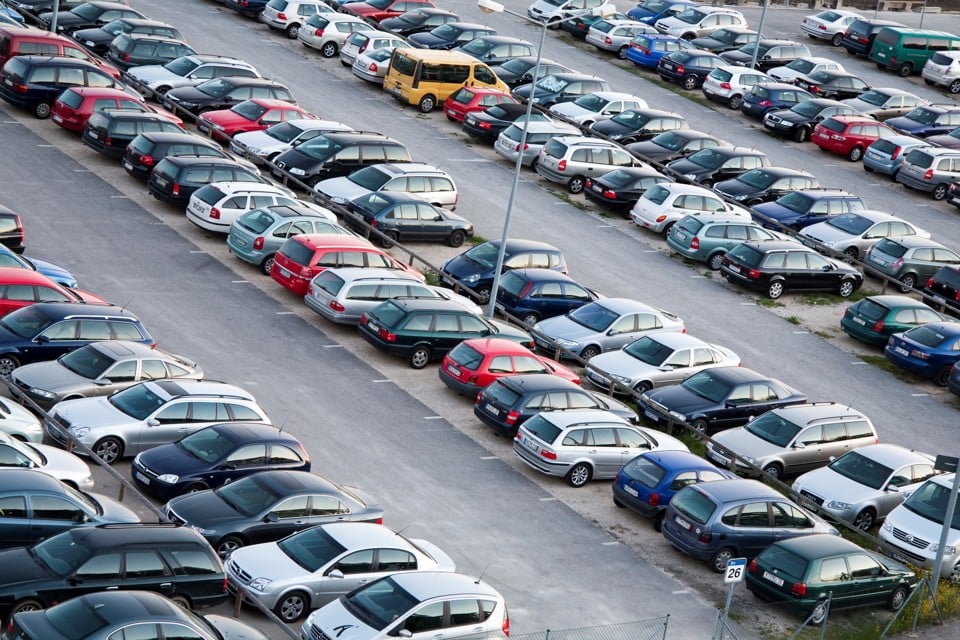The authors of a new code of practice for private parking companies say they will raise standards and deliver greater consistency for the benefit of motorists.
The new, single code of practice, drawn up by the British Parking Association (BPA) and the International Parking Community (IPC), is expected to be used across the entire private parking sector.
It includes a new 10-minute grace period for motorists, a requirement for operators to have clear signage and maintains a cap on the parking charge at £100, reduced to £60 if paid within 14 days.
Andrew Pester, BPA chief executive, said that the new code was a “key milestone” for the industry, enabling it to deliver “fairer and more consistent parking standards for motorists”.
“We will continue to push for a positive outcome for all.”
Private car parking companies issue more than 35,000 parking tickets, on average, every day, with analysis from the RAC Foundation showing that at least 9.7 million tickets were issued to drivers in Britain between April and December, last year.
They have long been accused of confusing signage, unreasonable fees and aggressive debt collection, but promised legislation that would have halved the cap on most tickets to £50, and created a fairer appeals system, was withdrawn by the Government in 2022, following a legal challenge by private parking companies.
The AA’s head of roads policy, Jack Cousens, said that the new “watered down” code of practice falls “far short of the standards the AA, Government and consumer groups have called for across many years”.
“This self-authored code doesn’t acknowledge the need to cap charges and remove debt recovery fees,” he continued. “These elements are desperately needed from a government backed code to protect innocent drivers from the sharks running private car parks.”
The new code of practice will take effect from October 1, 2024, but the two trade associations say that private parking operators will be given until December 2026 to comply.
Will Hurley, IPC chief executive officer, said the measures contained in the code will create “positive change” across the UK, “enhancing the protection of the most vulnerable in society, whilst creating consistency and clarity for motorists and continuing to elevate standards across the sector”.
Council car parking charges increase by up to 145%

The average daytime parking hourly rate across Britain has increased by 11% since 2022, while evening parking charges increased 22%, new research suggests.
The analysis, by Churchill Motor Insurance, of parking charges at council operated car parks, reveals the average cost of daytime parking was £1.15, before increasing to £1.23 in 2023 and £1.29 in 2024.
The average hourly evening parking charge for a council operated car park in Britain increased from £1 to £1.22 between 2022 and 2024, an increase of 22%.
Sandwell in the West Midlands has seen the biggest increase in parking charges in the past two years, with the average day time parking rate increasing from 40p to 98p since 2022 – a 145% uplift.
It was followed by Renfrewshire Council in Scotland – a 108% increase from 60p to £1.25 – and Oldham Metropolitan Borough Council in the north-west of England, increasing by 89% from 88p to £1.66.
'Biggest percentage increases' in daytime parking charges
|
Council |
Location |
Average hourly daytime parking rate (2022) |
Average hourly daytime parking rate (2023) |
Average hourly daytime parking rate (2024/25) |
Percentage change between 2022 and 2024/25 |
|
Sandwell Metropolitan Borough Council |
West Midlands |
40p |
40p |
98p |
145% |
|
Renfrewshire Council |
Scotland |
60p |
60p |
£1.25 |
108% |
|
Oldham Metropolitan Borough Council |
Northwest England |
88p |
96p |
£1.66 |
89% |
|
Uttlesford District Council |
East of England |
64p |
64p |
£1.20 |
88% |
|
London Borough of Hillingdon |
London |
86p |
£1.06 |
£1.47 |
71% |
|
Wakefield City Metropolitan District Council |
Yorkshire and the Humber |
55p |
55p |
90p |
64% |
|
Arun District Council |
Southeast England |
£1.10 |
£1.57 |
£1.78 |
62% |
|
Gravesham Borough Council |
Southeast England |
£1.30 |
£1.30 |
£2.00 |
54% |
|
Brighton and Hove City Council |
Southeast England |
£2.25 |
£3.10 |
£3.38 |
50% |
|
London Borough of Sutton |
London |
£2.00 |
£3.00 |
£3.00 |
50% |
Source: Churchill Motor Insurance
Overnight rates have also seen a large uptick from 2022, increasing by an average of 45% from £1.10 to £1.59 per hour across England, Scotland and Wales.
Councils which have introduced overnight parking charges since 2022 have begun charging an average of £2.90 per hour, rising to as much as £10 in the London Borough of Sutton, according to those councils which responded to a Freedom of Information request.
Nicholas Mantel, head of Churchill Motor Insurance, said: “We know that increased parking charges aren’t all about raising money for councils. Often, they are also put in place as a traffic management measure, encouraging people to use alternative transport options.
“With that in mind, no matter their location, drivers should check parking charges in advance of any journey and look to see where they might be able to find a cheaper rate.”
Bracknell Forest Council in the Southeast was the "most expensive" council run car park from the 138 councils which responded to the FOI – with an average day time hourly charge of £6.65 – followed by the Royal Borough of Kensington and Chelsea in London (£4.90) and Wyre Forest District Council in the West Midlands (£4.05)
'Most expensive' car parks
|
Council |
Location |
2024/25 day time parking rate (per hour) |
|
Bracknell Forest Council |
Southeast England |
£6.65 |
|
Royal Borough of Kensington and Chelsea |
London |
£4.90 |
|
Wyre Forest District Council |
West Midlands |
£4.05 |
|
Blackpool Council |
Northwest England |
£3.75 |
|
Brighton and Hove City Council |
Southeast England |
£3.38 |
|
City of Glasgow |
Scotland |
£3.38 |
|
Lancaster City Council |
Northwest England |
£3.30 |
|
London Borough of Sutton |
London |
£3.00 |
|
East Lothian Council |
Scotland |
£3.00 |
Source: Churchill Motor Insurance





















Login to comment
Comments
No comments have been made yet.